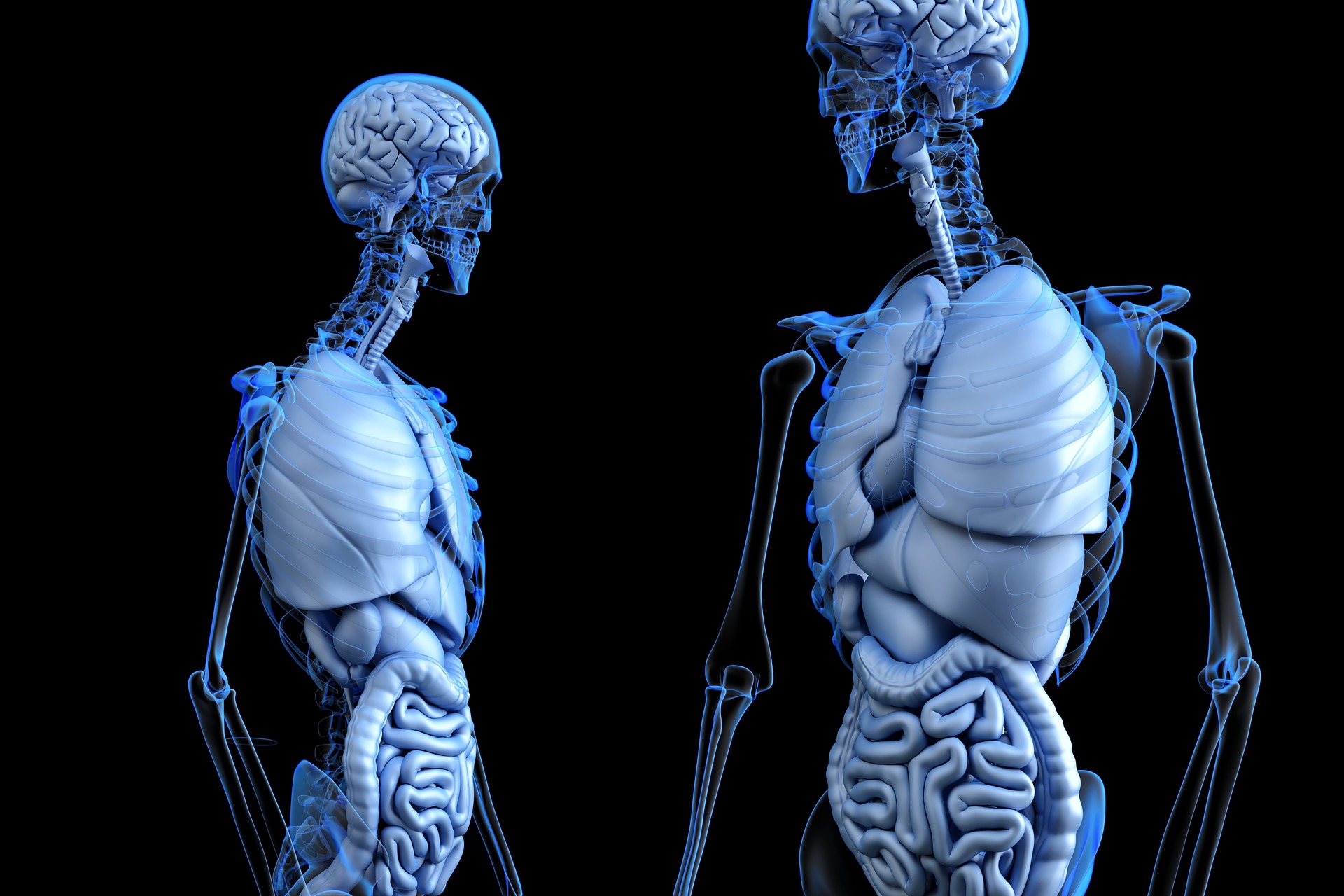Your brain functions 24/7, taking care of your thoughts, movements, breathing, reproduction, coordination, site, smell, and so forth, working while you sleep and so you can sleep. It never stops. This means your brain not only requires constant fuel, but it needs high quality.

I like to think of cars when I think of fueling the body, especially the mind. Like an expensive car, your brain benefits from getting only the highest of premium fuel, getting the right amount of carbohydrates, proteins and fats, each used for different purposes.
Complex carbohydrates, for instance, supply the brain cells with energy and nourishment, while the fats provide the structure for the walls of the nerve cells, and the proteins, which have been broken down to amino acids, are used to make up the neurotransmitters. Together, along with the vitamins, minerals and antioxidants in the foods you ingest, these nutrients nourish and protect the brain from oxidative stress and subsequent damage.
Just like an expensive car, when you ingest anything less than premium fuel, your brain can be damaged. Unlike the rest of the organs in your body, your brain requires protection and is therefore housed in a closed compartment, so very little gets in and out. If low premium fuel (such as you get from processed or refined foods and sugars) gets to the brain, it has little ability to get rid of it.

Diets high in refined sugars, for example, are harmful to the brain, inducing an inflammatory cycle, poor insulin regulation and oxidative stress. Multiple studies have found a correlation with such poor food choices and cognitive functioning, and/or worsening mood disturbances. (see reference 1,2,3)
It makes logical sense really. If you brain is deprived of nutrition or if free radicals or damaging inflammatory cells are flying around an enclosed space, further injuring the brain, consequences are to be expected. What’s interesting is that for many years, the medical field did not fully acknowledge the connection between mood and food.
Today, fortunately, the burgeoning field of nutritional psychiatry is finding there are many consequences and correlations not only between what you eat, how you feel, and how you ultimately behave, but also the kind of bacteria that live in your gut.
Since about ninety five percent of your serotonin is produced in your gastrointestinal tract, it makes sense that the hundred million nerve cells or neurons lining your gastrointestinal tract don’t just help you digest food, but also guide your emotions.

What’s more is that the function of these neurons and the production of these neurotransmitters is highly influenced by the billions of “good” bacteria that make up your intestinal microbiome–bacteria that are essential in their role of protecting the intestinal wall lining, ensuring it provides a good barrier against toxins and “bad” bacteria, in limiting inflammation, in improving absorption, and in activating neural pathways that travel directly between the gut and the brain. (see reference 4)
Science is telling us now that when probiotics (supplements containing the good bacteria) are added to the diet, anxiety, perception of stress and mental outlook improve, compared to controls who do not receive the probiotic. (see reference 5)
Other studies that compare traditional diets like the Japanese or Mediterranean diet to the Western diet have shown that the risk of depression is lowered by twenty-five to thirty percent. (see references 6,7,8,9,10,11)
Scientists account for this difference because these diets tend to be high in vegetables, fruits, unprocessed, grains, fish and seafood, only modest amounts of lean meats and dairy, while void of processed and refined foods and sugars. In addition, many of these foods are fermented and therefore act as natural probiotics.

What does this mean for you and what can you do?
- Pay attention to how eating different foods makes you feel, not just in the moment, but the next day.
- Try going “clean” for two to three weeks whereby you cut out all processed foods and sugar.
- Add fermented foods like kimchi, miso, sauerkraut, pickles, or kombucha.
- Try going grain free and dairy free if you can.
- Keep a journal describing your food intake and how you feel physically, emotionally or psychologically.
- Then, slowly introduce grains, then dairy and see how you feel.
You may find that when you “go clean”, you feel more energize, your thinking is clearer and your mood more positive. Give it a try!
And, be sure to read more articles in WBTW’s nature, wellness, mind/body and spirituality sections.
References & Sources:
- Eskelinen MH at el. Fat intake at midlife and cognitive impairment later in life: a population-based CAIDE study. International Journal of Geriatric Psychiatry. July 2008;23(7):741-7.
- Benton D. et al. The influence of the glycaemic load of breakfast on the behaviour of children in school. Physiology & Behavior. November 2007;92(4):717-24.
- Rao TS, Asha MR, Ramesh BN, Rao KS. Understanding nutrition, depression and mental illness. Indian Journal of Psychiatry. April 2008; 50(2): 77-82.
- Selhub EM, Logan AC, Bested AC. Fermented foods, microbiota, and mental health: ancient practice meets nutritional psychiatry. Journal of Physiological Anthropology 2014; 33(2): 2-12.
- Bested AC, Logan AC, Selhub EM: Intestinal microbiota, probiotics and mental health: from Metchnikoff to modern advances. Part III – convergence toward clinical trials. Gut Pathogens 2013, 5:4.
- Jacka FN, Mykletun A, Berk M, Bjelland I, Tell GS: The association between habitual diet quality and the common mental disorders in community-dwelling adults: the Hordaland Health study. Psychosomatic Medicine 2011, 73:483–490.
- Jacka FN, Pasco JA, Mykletun A, Williams LJ, Hodge AM, O’Reilly SL, Nicholson GC, Kotowicz MA, Berk M: Association of Western and traditional diets with depression and anxiety in women. American Journal of Psychiatry 2010, 167:305–311.
- Sánchez-Villegas A, Delgado-Rodríguez M, Alonso A, Schlatter J, Lahortiga F, Serra Majem L, Martínez-González MA: Association of the Mediterranean dietary pattern with the incidence of depression: the Seguimiento Universidad de Navarra/University of Navarra follow-up (SUN) cohort. Archives of General Psychiatry 2009, 66:1090–1098.
- Akbaraly TN, Brunner EJ, Ferrie JE, Marmot MG, Kivimaki M, Singh-Manoux A: Dietary pattern and depressive symptoms in middle age. British Journal of Psychiatry 2009, 195:408–413.
- Skarupski KA, Tangney CC, Li H, Evans DA, Morris MC: Mediterranean diet and depressive symptoms among older adults over time. The Journal of Nutrition Health and Aging 2013, 17:441–445.
- Rienks J, Dobson AJ, Mishra GD: Mediterranean dietary pattern and prevalence and incidence of depressive symptoms in mid-aged women: results from a large community-based prospective study. European Journal of Clinical Nutrition 2013, 67:75–82.
Dr. Eva Selhub is an internationally recognized resiliency expert, physician, author, speaker, scientist and consultant. Dr. Eva engages her clients and her audiences with her powerful energy, words of wisdom and scientific knowledge to activate the five pillars of resilience–physical, mental, spiritual, relationship and team– to achieve optimal resilience, success, health and happiness. Board Certified in Internal Medicine, Dr. Eva served as an Instructor of Medicine at Harvard Medical School and as a Clinical Associate of the world renowned Benson Henry Institute for Mind-Body Medicine at the Massachusetts General Hospital for nearly 20 years. She is the author of The Love Response and the co-author of Your Brain on Nature, and her latest book Blow up or Bliss Out will release in 2018. Dr. Eva has been included in national media such as The New York Times, USA Today, Self, Shape, Fitness, Health, The Dr. Oz show and more. In addition to We Blog the World, she also writes for Huffington Post, MindBodyGreen, Steven Aitchison, Success Stories, Rebelle Society, Good Men Project and Human Spaces.








